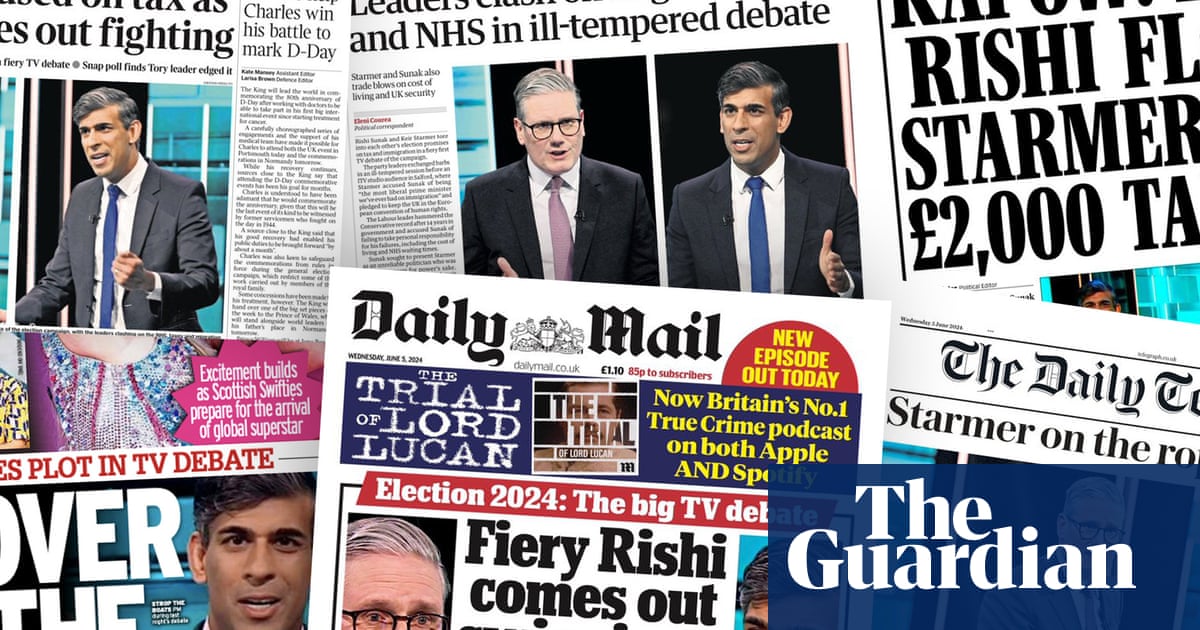Ministers are refusing to name the media companies that lobbied them over laws restricting foreign state ownership of British newspapers, the Guardian can reveal.
The government announced last month it was tripling the proportion of a British newspaper thatcould be owned by an overseas power to 15%. The change paves the way for the Telegraph to be bought by a consortium including an investment vehicle backed by the United Arab Emirates.
However, ministers have taken the unusual step of ordering secrecy over the names of four media companies that responded to a consultation on the issue. A crossbench group of peers scrutinising the proposed law change said they had been told not to reveal the companies involved.
The group, which includes Labour peers, said: “We were asked by the department not to reveal the identity of the organisations which responded. We are concerned about the department’s decision to treat information about the respondents to a public consultation confidentially.
“This is an unusual approach, especially as the published consultation document made clear that a summary of the key points raised would be published on the department’s website, including ‘a list of the organisations that responded’.”
The Guardian understands that Rupert Murdoch’s News UK was one of the companies to respond. Lord Rothermere’sDaily Mailand General Trust (DMGT) group, which owns the Daily Mail, Mail on Sunday and the i Paper, has also reportedly given its view to ministers. It is not known what position either company took. News UK and DMGT declined to comment.
The Guardian has already revealed that a UAE delegationmet Downing Street officialsweeks before the law change was announced.
DMGT has links to the Gulf, where it has focused its events business. Lord Rothermere was also spotted among the high-profile media figures in Doha last month meeting the US president, Donald Trump, and the Qatari emir, Tamim bin Hamad Al Thani.
The law change, which is to be subjected to a House of Commons vote, is seen as part of Keir Starmer’s drive to woo overseas investors as part of his search for UK economic growth. But there are concerns in parliament over any easing of the state ownership law.
Max Wilkinson, the Lib Dem spokesperson for culture, media and sport, said: “It’s unbelievable that ministers will not reveal who advised them. Many people will assume the worst: that vested interests have bent the will of the government on this vital issue.
“Our country has a proud history of free and independent journalism. It’s a principle that lies at the heart of our democratic tradition. The willingness of our government to water that down is deeply concerning. The ministers involved must come clean. Meanwhile, me and my Lib Dem colleagues in parliament will work fearlessly to stand up for our free press and block this legislation from passing.”
According to the government’s summary of the arguments presented to it over the proposed law change, one unnamed company pushed for the threshold for foreign state ownership to be raised to 25% of a newspaper. It pointed to national security laws that allow foreign states to own 25% of vital infrastructure, such as nuclear power plants.
Such pressure to relax the rules around state ownership is a sign of the increasing role in the media played by funds backed by Gulf states. The UAE is poised for a share of the Telegraph, while Saudi Arabia is already invested in television sports rights via the streamer Dazn.
The law change effectively paves the way for the Telegraph to be acquired by the US fund RedBird Capital, with a minority stake held by IMI, a UAE-controlled vehicle. The Guardian understands Lord Rothermere is still in talks over his own minority stake in theTelegraph Media Group, as part of RedBird’s consortium. However, the takeover has still not taken place.
A Department for Culture, Media and Sport spokesperson said: “In deciding whether to reveal the names of individual consultation respondents we must balance the public interest of transparency with the needs of commercial confidentiality.
“Our approach in finalising the foreign state influence rules will safeguard our news media from foreign state control whilst recognising that news organisations must be able to raise vital funding.”
